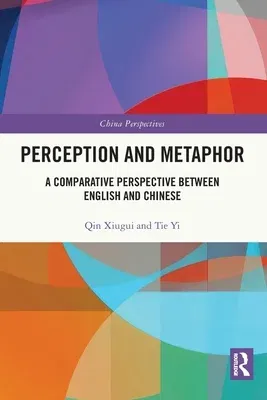Qin Xiugui
(Author)Perception and Metaphor: A Comparative Perspective Between English and ChinesePaperback, 9 January 2023

Qty
1
Turbo
Ships in 2 - 3 days
In Stock
Free Delivery
Cash on Delivery
15 Days
Free Returns
Secure Checkout

Part of Series
China Perspectives
Print Length
380 pages
Language
English
Publisher
Routledge
Date Published
9 Jan 2023
ISBN-10
1032033339
ISBN-13
9781032033334
Description
Product Details
Authors:
Book Format:
Paperback
Country of Origin:
US
Date Published:
9 January 2023
Dimensions:
23.39 x
15.6 x
2.01 cm
ISBN-10:
1032033339
ISBN-13:
9781032033334
Language:
English
Location:
Oxford
Pages:
380
Publisher:
Series:
Weight:
535.24 gm